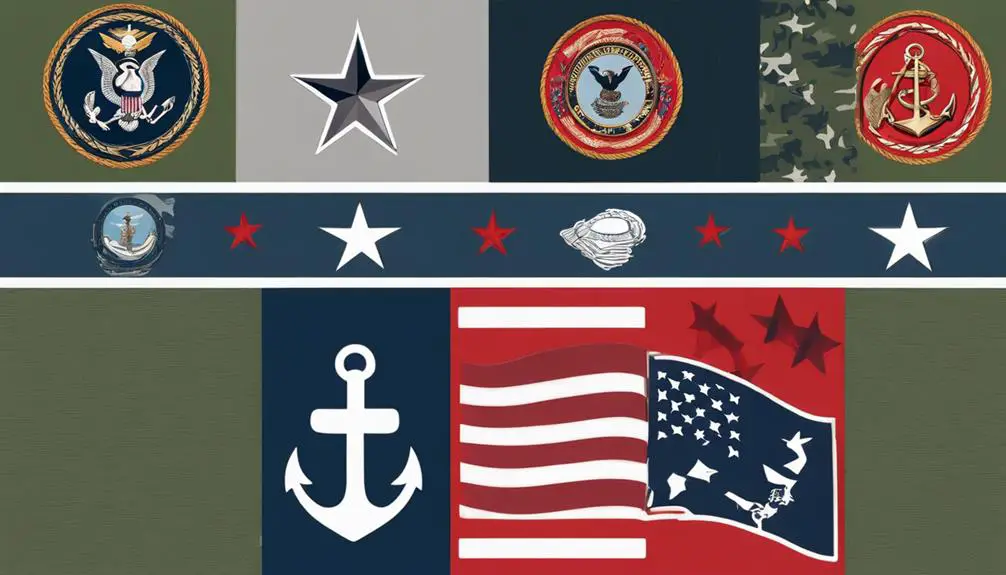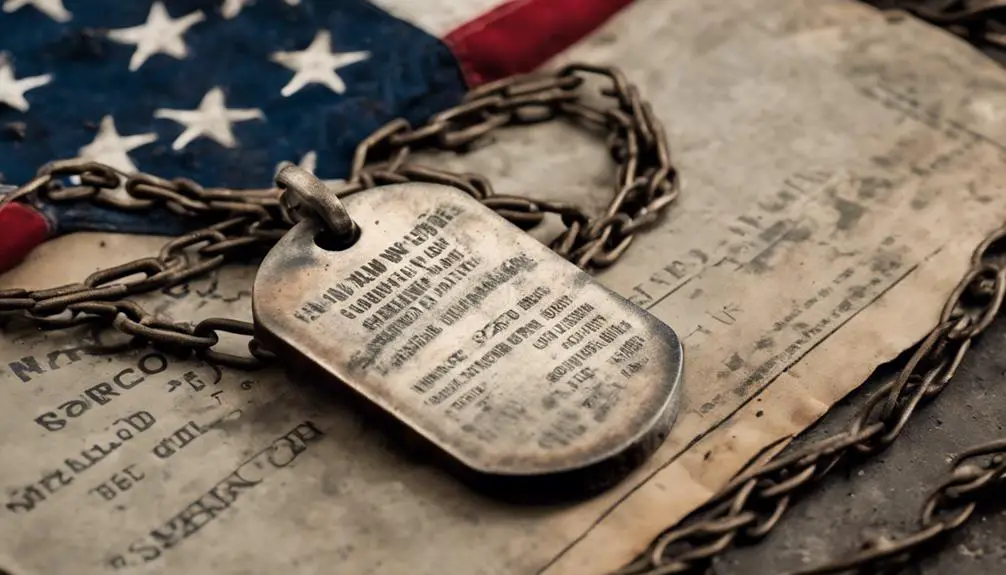You're about to explore the world of military slang, where words and phrases take on new meanings. Military slang originated from the need for quick and discreet communication during wartime, with terms like 'foxhole' originating from World War I. Today, phrases like 'Hooah' and 'Oorah' are widely used across the armed forces. Each branch has its unique slang, shaped by its culture, mission, and history. As you venture deeper, you'll discover the evolution of military jargon, reflecting historical and technological advancements – and uncover the cultural significance behind the phrases that define the military lifestyle.
Origins of Military Slang Terms

Frequently, military slang terms originate from the need for importance and urgency in communication during wartime, with soldiers and sailors creating coded language to convey complex information quickly and discreetly. You might wonder how these terms come to be. An etymological analysis of military slang reveals that many terms have their roots in historical events, cultural influences, and technological advancements.
In the midst of war, communication is vital, and soldiers often rely on coded language to convey messages without alerting the enemy. This need for significance led to the development of slang terms that were unique to each military branch and conflict. For instance, 'foxhole' originated from World War I, where soldiers used trenches as shelter from artillery fire.
Understanding the historical context of military slang is essential in appreciating its significance. You'll find that many terms have evolved over time, reflecting changes in military tactics, technology, and cultural norms. By examining the origins of military slang, you'll gain insight into the experiences and challenges faced by soldiers throughout history.
Common Phrases Used Today
As you explore the world of military slang, you'll likely come across phrases that have stood the test of time, continuing to be used by military personnel today. These phrases have become an integral part of the military culture, allowing service members to communicate efficiently and effectively.
You may hear phrases like 'Hooah' (meaning 'yes' or 'agreed'), 'Roger that' (meaning 'understood'), or 'Oorah' (a battle cry). These phrases have been adopted from various military branches and are now widely used across the armed forces.
In addition to these phrases, you'll also encounter terms like 'Civvy Lingo' (civilian language) and 'Vet Vernacular' (veteran slang). These terms highlight the distinction between military language and civilian language, showcasing the unique culture and lingo of the military community.
It's essential to understand these phrases and terms to appreciate the nuances of military communication. By familiarizing yourself with these common phrases, you'll gain a deeper insight into the world of military slang and its significance in military culture.
Slang in Different Military Branches

While serving in different military branches, you'll discover that each branch has its unique slang, shaped by its distinct culture, mission, and history.
The Army, for instance, has its own lingo, with terms like 'hooah' (meaning 'yes' or 'agreement') and 'FOB' (Forward Operating Base).
The Marines, on the other hand, use phrases like 'ooh-rah' (an expression of enthusiasm) and 'moto' (short for 'motivated').
The Air Force has its own set of slang, with terms like 'bent' (meaning 'broken' or 'malfunctioning') and 'SAM' (Surface-to-Air Missile).
The Navy, with its rich tradition of Navy Lingo, uses phrases like 'deck' (referring to the ship's floor) and 'head' (meaning 'bathroom').
Each branch's slang reflects its specific needs, environment, and values. Understanding these nuances is essential for effective communication and camaraderie within each branch.
Military Acronyms and Abbreviations
You'll quickly realize that military communication relies heavily on acronyms and abbreviations, which serve as a shorthand for complex terms and phrases, allowing personnel to convey critical information efficiently.
These shortcuts are essential in high-stress environments where every second counts. However, the sheer volume of acronyms and abbreviations can lead to Acronym Overload, causing confusion and miscommunication. It's not uncommon for military personnel to experience Abbreviation Chaos, where they struggle to keep track of the numerous abbreviations and acronyms used daily.
To mitigate this, military organizations have developed standardized lists of approved acronyms and abbreviations. These lists help guarantee consistency across different units and branches, reducing the risk of miscommunication.
Additionally, military personnel are trained to use acronyms and abbreviations correctly, with many units having their own specific terminology. By understanding the importance of acronyms and abbreviations, you'll appreciate the complexity of military communication and the efforts made to simplify it.
Evolution of Military Jargon

As you explore the world of military slang, it's important to grasp the evolution of military jargon. Military jargon has undergone significant transformations throughout history, adapting to the changing nature of warfare, technological advancements, and shifting cultural norms.
You'll find that military slang has been shaped by the cultural impact of different eras. For instance:
- World War II: The phrase 'GI Joe' originated from the term 'Government Issue' used to describe the standard-issue equipment given to soldiers.
- Vietnam War: The term 'grunt' emerged to describe infantrymen, reflecting the harsh realities of ground combat.
- Modern Era: The rise of technology has led to the creation of new terms like 'drone' and 'cyberwarfare,' highlighting the evolving nature of modern warfare.
This evolution is a reflection of the historical significance of military jargon, which continues to adapt to the changing nature of warfare and societal norms.
As you explore the world of military slang, remember that the language used by service members reflects the cultural, social, and technological advancements of their time.
Frequently Asked Questions
Can Only Officers Use Military Slang or Is It for Everyone?
You might think military slang is reserved for high-ranking officers, but that's not the case. In reality, military slang is used across the rank hierarchy, from enlistees to generals.
It's a way to communicate quickly and efficiently, often in high-pressure situations. Regardless of your rank, using military slang is a badge of honor, signaling you're part of the team.
It's one of the many enlistment benefits that come with serving your country.
Do Civilians Use Military Slang in Everyday Conversations?
You might be surprised to find that civilians do use military slang in everyday conversations. This phenomenon can be attributed to cultural norms, where certain phrases or expressions become ingrained in popular culture.
As you adopt military slang, you're signaling a sense of toughness, camaraderie, or authority, which can be appealing. It's a way to tap into a sense of social identity, even if you're not affiliated with the military.
Are Military Slang Terms Used Universally Across All Countries?
You might be surprised to know that 75% of international military operations involve forces from different countries.
When it comes to military slang, you'll find that cultural differences and language barriers hinder universal adoption across countries. While some terms might be borrowed, the nuances of each country's military culture and language create significant obstacles to universal usage.
It's unlikely that military slang terms are used uniformly worldwide, and you'll instead find a diverse array of terms reflecting local dialects and cultural influences.
Is Military Slang Only Used During Times of War?
You might think military slang is only used during times of war, but that's not entirely true. While it's true that wartime lingo often emerges during conflicts, military personnel also use informal language during peace time.
You'll still hear peace time jargon in barracks, on bases, and in military communications. Military slang serves as a way to build camaraderie, simplify complex terms, and create a sense of shared experience, regardless of whether the country is at war or not.
Can Military Slang Be Used in Formal Military Writing?
You might be surprised to know that 95% of military communications involve written reports.
Now, when it comes to using military slang in formal military writing, the answer is a definite no. A formal tone is essential in written protocol, and slang has no place in it.
You're expected to adhere to strict guidelines, avoiding colloquialisms and jargon. Stick to standardized language to guarantee clarity and professionalism in your writing.
Conclusion
You've explored the captivating domain of military slang, where conciseness and clarity are essential.
On one hand, the vibrant phrases and acronyms serve as a badge of honor, fostering camaraderie among troops.
On the other hand, they can be a barrier to outsiders, perpetuating an 'us versus them' mentality.
As you've seen, military slang is a complex, ever-evolving beast – a reflection of the individuals who use it, with all their contradictions and complexities.







